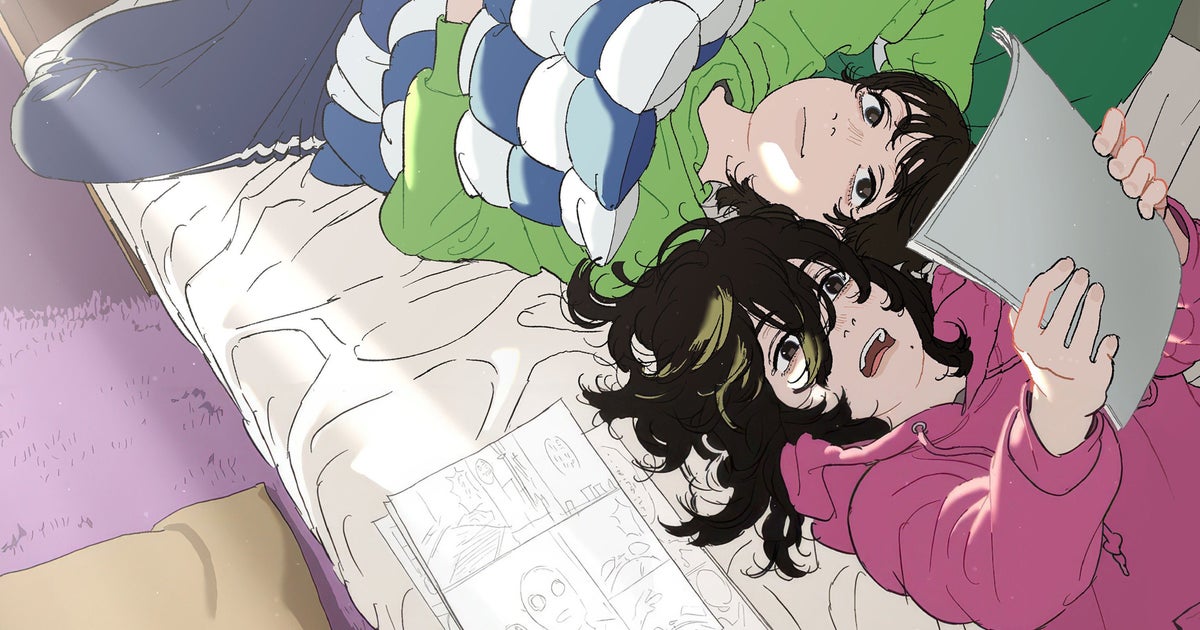Polygon’s Editor’s Letter is a column from Editor-in-Chief Chris Plante that reflects on the video game and entertainment industries, their communities, and Polygon itself. New editions appear in the first week of each month.
November is a “Goldilocks window” for role-playing games. I’m burned out on horror movies, but not quite ready for Christmas music. I’ve scheduled chunks of vacation with no particular plans on how to fill welcome gaps in the calendar. And the harmonizing siren songs of the sofa, my favorite blanket, and a warm cup of tea can no longer be ignored.
Perhaps you can relate and have already begun scrolling Steam or your preferred console storefront for the next great RPG. The challenge, you will find, is choice.
2024 has been a historic year for the genre, with the release of not just one exceptional RPG designed meticulously for a particular subset of fans but many excellent titles, each heat-seeking a unique corner of the gaming audience. We have the awakening of a long-slumbering blockbuster franchise, a wholly original globe-trotting thriller set against a high-stakes election, and a reimagining of the most famous RPG of all time. Not to mention the Hawaiian open-world crime drama featuring time-slurping parodies of Animal Crossing and Pokémon.
So, as not to be prescriptive, I’ll use this month’s editor’s note to do something fundamental to Polygon: point you, dear readers, toward a video game that will make your life richer, however you might define that in this exceptionally unusual time.
Let’s open with a fastball down the middle. Dragon Age: The Veilguard is the quintessential mainstream role-playing game. Whether that sounds like high praise or scathing critique will help you decide if it’s for you.
Developed by beloved RPG studio BioWare, The Veilguard revives a franchise that’s been quiet in the decade since Dragon Age: Inquisition won Game of the Year at the 2014 Game Awards. Veilguard features everything you’d expect from a blockbuster AAA RPG in the year 2024: action-heavy combat, flashy graphics that make the most of high-end consoles and PCs, and a delectable story fizzing with drama, romance, and intrigue.
Veilguard is the coziest RPG on this list, the sort of game in which you can easily escape the troubles of the real world as you resolve the problems of another realm.
Created by many of the designers responsible for the Persona series, Metaphor plays like its predecessor, albeit with the modern Japanese high school setting swapped for a high-fantasy world inspired by pre-Tolkien pulp fantasy, renaissance surrealists like Hieronymus Bosch, and the modern global reckoning with the power and limitations of democracy. No, I’m not joking.
Metaphor: ReFantazio is Veilguard’s opposite. Instead of real-time fights, Studio Zero commits to the turn-based combat of the genre’s past. And its story is unapologetically strange. After a king’s assassination, his spirit returns in the form of a stone face the size of a moon that orchestrates an impromptu election in which the candidates travel the nation on chicken-legged land ships, winning support by slaughtering mutated monsters called Humans.
But what truly distinguishes this game from the rest is its politics. What scans, at first, as a game about race bends toward a thoughtful, complicated, and ultimately uncertain conversation about tribalism. It’s that uncertainty that I’ve appreciated most over my 65 hours with the game. This is the only video game from a major publisher released this year that affords time to lengthy debates about third-rail topics like the mental justifications behind political assassinations, the contradictory relationships between religions and political parties, and the limits of fiction to provoke change.
You likely never played the original Dragon’s Dogma, a decade-old cult game buried by the twin popularity of Skyrim and Dark Souls, both released the year prior. No worries; no experience necessary. Dragon’s Dogma 2 is more reboot than sequel, providing the visual panache and quality-of-life improvements expected of a AAA game from publisher Capcom.
However, its creators were mindful not to sand off the rough edges that distinguished Dragon’s Dogma from its polished peers. Dragon’s Dogma 2 feels like being inside a Dungeons & Dragons adventure in the most literal sense. Rather than fast travel from land to land, you take exhausting hikes that require you to plan ahead with rations and camping equipment. When you encounter a mythological beast the size of a school bus, the battle’s as challenging as you’d expect — with your gang of adventurers more likely to be hurled off a cliff than land a heroic, lethal blow.
Of this bunch, Dragon’s Dogma 2 is the most divisive, asking the most of its players’ skill, patience, and willingness to fill in the gaps of the story with their imagination. In return, they get the warm memories of a tough journey. For some, myself very much included, that’s more than enough.
Until recently, Final Fantasy 7 Rebirth was widely considered the front-runner for Game of the Year at the Game Awards. Despite disappointing sales, the second part of Square Enix’s reimagining of arguably the most beloved RPG of all time found purchase with critics and millions of fans.
The target audience here is a bit limited in that you’ll need a PlayStation 5 to play the game, and some experience with the source material to appreciate it. Do you need to have played the original Final Fantasy 7 to appreciate this game? It helps, though you can easily enjoy this adventure after watching a YouTube summary of its predecessor. Should you play Final Fantasy 7 Rebirth if you haven’t played Final Fantasy 7 Remake? That’s a trickier question. Remake is an excellent game that elegantly sets the stage for Rebirth’s bolder twists. You theoretically could skip Remake, but why deprive yourself of that experience?
Until this year, The Thousand-Year Door had been marooned on the Nintendo GameCube with old copies selling at exorbitant prices on secondhand markets. Nintendo’s remake for the Nintendo Switch, released in May, gives the game high-definition visuals (so it won’t look fuzzy on your modern TV), but its real selling point is the ease of playing the masterpiece whenever you like at a reasonable cost.
When you visit your local game shop, you might be tempted to instead grab Nintendo’s new riff on the Mario RPG formula, Mario & Luigi: Brothership. Resist! Newer isn’t better. In the case of Mario RPGs, they truly don’t make them like they used to.
Behold, the everything bagel of role-playing games. The latest entry in the series formerly known as Yakuza features massive minigames riffing on games like Animal Crossing; multiple open-world cities spanning Japan and the Hawaiian islands; battles that paradoxically blend real-time action and turn-based combat; and some of the most life-affirming, inventive, and gripping writing in any game this year — whatever the genre.
Like a Dragon: Infinite Wealth is the game I recommend to, well, everybody. And despite its scale (I hit credits after 90 hours and have plenty more to do) and its silliness (this is the only video game on the list that features a Pokémon-style minigame in which you collect, train, and battle perverts), every person I convince to try the game falls in love.
If you somehow made it to the end of this list undecided, then let me make this decision for you. Play Like a Dragon: Infinite Wealth.

 2 hours ago
2
2 hours ago
2














 English (US) ·
English (US) ·